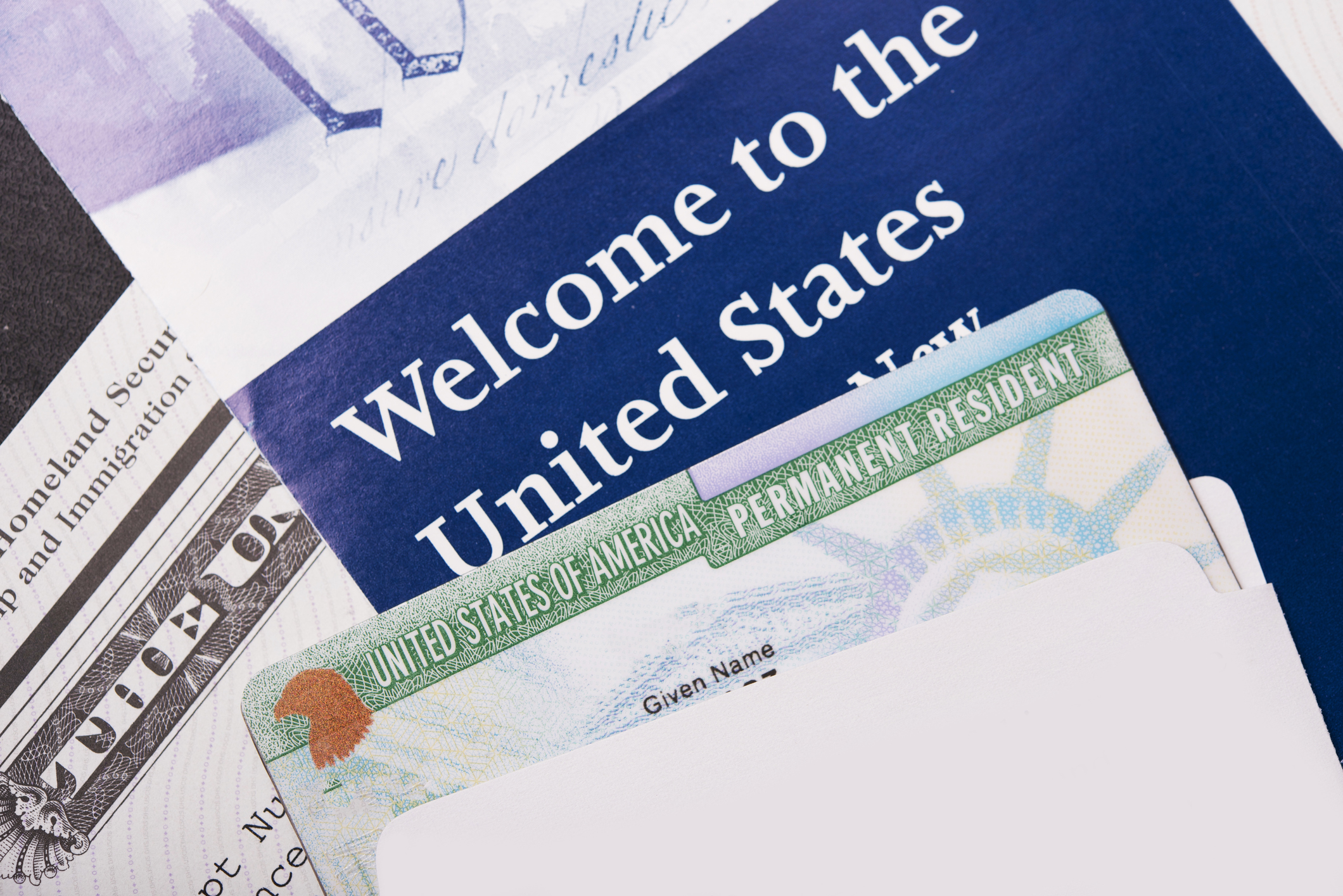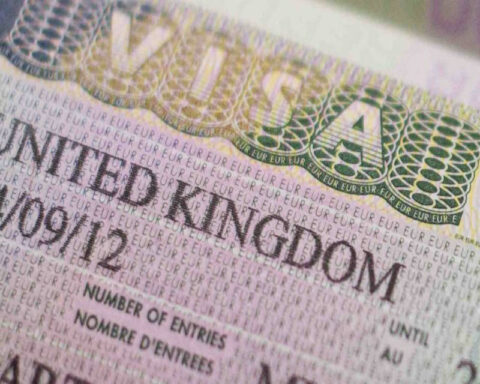Becoming a legal permanent resident in the United States, also known as getting a green card, is a significant goal for many people around the globe. Why is it important? Besides allowing you to live and work in the U.S., it’s the crucial first step towards naturalization or full U.S. citizenship.
However, the process can be complex and confusing. This blog aims to demystify the green card application process, providing you with a comprehensive understanding of its elements to streamline your journey toward achieving the “American Dream.”
What is a Green Card?

A green card, formally known as a Permanent Resident Card, is a document issued by the U.S. government that grants immigrants the right to live and work permanently in the United States. Green card holders are officially termed “Lawful Permanent Residents” (LPRs).
Beyond work and residence rights, it allows you access to social security benefits and state-sponsored healthcare, along with the ability to sponsor relatives for their green cards. Yet, it also comes with responsibilities, such as paying taxes and renewing the card regularly. Importantly, it’s a stepping-stone toward U.S. citizenship.
Eligibility Criteria for a Green Card
Getting a green card is not open to everyone. To be eligible, one must fall under one of several categories. The most common are family-sponsored and employment-based green cards.
The former is for those who have immediate relatives who are U.S. citizens or LPRs, while the latter is for individuals who have a permanent employment opportunity in the U.S. or possess exceptional abilities in certain fields.
Other categories include the Diversity Visa program (also known as the lottery), refugee or asylum status, and several special immigrant classes such as religious workers and international broadcasters.
The Green Card Application Process

The green card application process involves multiple steps. The first step is filing an immigrant petition (usually by a U.S. citizen or LPR sponsor, or a U.S. employer). This is part of the equation where you might consider an immigration lawyer in Atlanta or any other form of professional legal help.
Upon approval, the next step is applying for the green card itself. The process differs based on whether you are applying from within or outside the U.S. Both involve several forms, fees, a medical examination, biometric data submission, and finally, an interview.
Understanding Different Forms Involved
There are several forms involved in the green card application process. The most common are Form I-130 for family-based applicants, Form I-140 for employment-based applicants, and Form I-485, which is the actual green card application.
Each form has a unique purpose and must be filled out correctly to avoid any delay or denial of your application. Comprehensive instructions for each form can be found on the U.S. Citizenship and Immigration Services (USCIS) website.
Understand the distinctions between a green card and U.S. citizenship in our comprehensive article, and explore the process and requirements.
Cost of the Green Card Application

The cost of applying for a green card varies depending on the category under which you’re applying. For most applicants, the total cost can range from $1,200 to $1,760. This includes the application fee, biometric services fee, and a possible fee for an immigrant petition. It’s important to note that the USCIS doesn’t refund these fees if your application is denied.
Importance of Medical Examinations and Biometrics
The medical examination and biometrics are essential and non-negotiable steps in the green card application process. A government-approved physician conducts the medical exam, which includes a comprehensive health check-up to ensure you don’t pose a public health risk, thereby safeguarding the overall community’s well-being.
Infectious diseases, mental disorders, and drug abuse are among the issues flagged. The biometrics process entails capturing your fingerprints, photograph, and signature. These are crucial for identity verification and conducting background checks that help maintain the country’s internal security.
Both steps demonstrate a robust system designed to uphold the health and safety standards of the U.S.
Waiting Period and Priority Dates
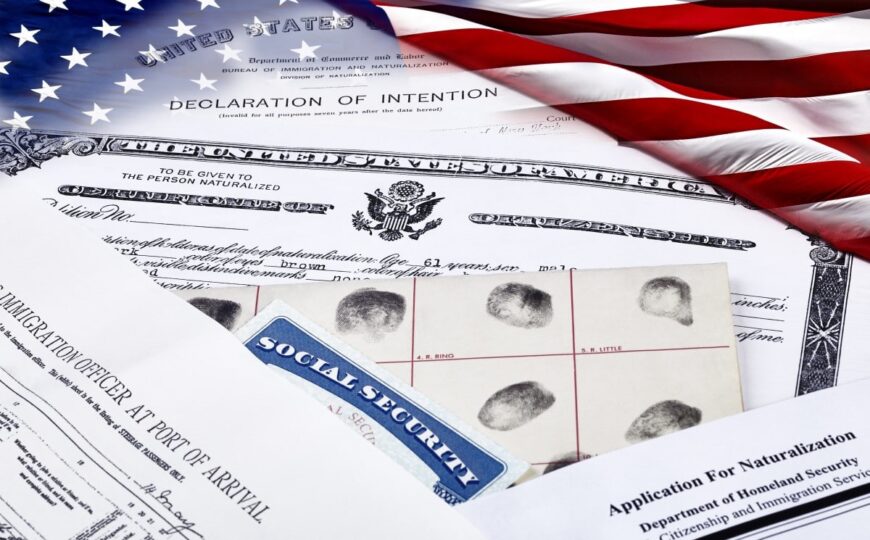
Following the submission of your application, a waiting period commences. This delay is primarily due to the limited number of green cards issued each year, tightly regulated by the U.S. government. Your priority date, the exact date your petition was officially filed, plays a key role in determining your place in the application queue.
It’s important to remember that priority dates can vary widely based on both the category under which you’re applying and your country of origin. As a result, prospective green card holders may encounter wait times that span from just a few months to multiple years.
The Interview Process
The green card interview is a significant, often decisive step in the application process. An authorized USCIS officer conducts the interview, its purpose being to verify the information provided in your application and to comprehensively assess your eligibility for obtaining a green card.
Adequate preparation is key: understand all details of your application thoroughly, bring necessary original documents to corroborate your information, and be ready to answer personal questions confidently. This includes questions about your background, family, job, and intentions in the U.S.
Possible Outcomes of Your Application
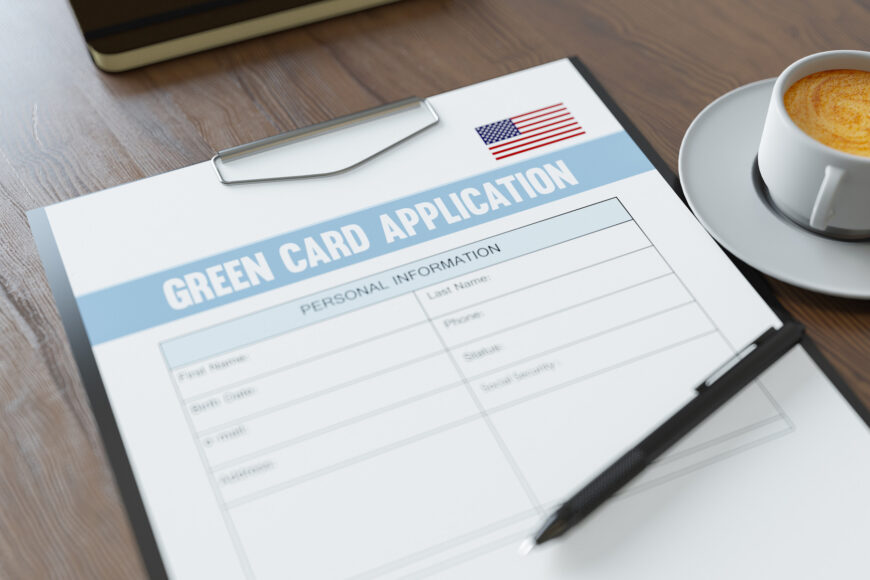
After the nerve-wracking interview, there are three potential outcomes: approval, denial, or a request for additional evidence. If approved, you can sigh in relief, as you will receive your green card by mail within a few weeks. In case of denial, the USCIS will send you a letter clearly explaining the reasons for such an outcome.
Alternatively, the USCIS might need more details to make a decision, and thus will send you a Request for Evidence (RFE), specifying the precise information you need to provide. Respond to an RFE promptly to avoid further delays.
What to Do if Your Application is Denied
A denied application can be deeply disappointing and unsettling, but it’s crucial to remember that it’s not the end of the road. The USCIS provides a couple of remedies such as filing an appeal with the Administrative Appeals Office (AAO) or a motion to reopen or reconsider your case.
In the process of understanding everything you need to know about green card applications, you might come across 4 situations when you need an immigration lawyer to ensure a smooth and successful application process.
It’s advisable, especially in these situations, to consult with an experienced immigration attorney to understand your best options and craft a compelling case for your green card eligibility.
Conclusion
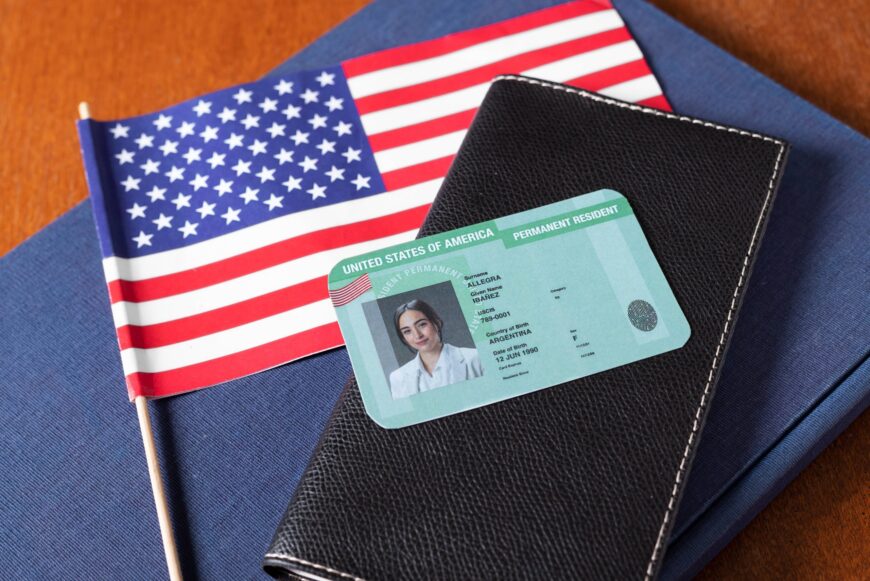
Despite its complexity, the green card application process can be navigated successfully with the right knowledge and preparation. While it may seem daunting, remember that thousands have successfully done it before you. The benefits of obtaining a green card – the opportunity to live and work permanently in the U.S. – make the process worthwhile. Good luck on your journey!

